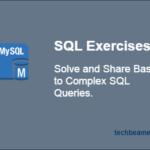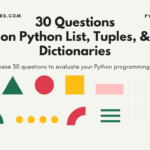In this post, we bring you the 10 best IDEs for R programming in 2023. R is a popular programming language for statistical computing and graphics. It is used by data scientists, analysts, and researchers around the world. And be it R or any other programming language, you need to have the right IDE to showcase your skills. By harnessing the power of an IDE, you can create applications that matter. It can not only make you develop apps faster but also assist in quickly debugging and fixing issues.
10 Best IDEs for R Programming
Here are the 10 best IDEs for R in 2023.

1. RStudio
RStudio is the most popular IDE for R programming. It is a free and open-source IDE that provides a wide range of features. It bundles an excellent code editor, debugger, console, and R Markdown support. RStudio comes with a user-friendly display and has the ability to integrate with other R packages and tools.
2. Jupyter Notebook
Jupyter Notebook is a web-based IDE that is popular for data science and machine learning. It allows users to create and share interactive documents that contain code, text, and visualizations. It is good for those who want to collaborate with others or want to share their work with a non-technical audience.
3. Visual Studio Code
VS Code is a popular code editor and is a great option to choose as the best IDE for R. It is a free and open-source editor that provides a ton of features. It supports syntax highlighting, code completion, and debugging. Visual Studio Code is right for users who are already familiar with it or who want to use a single editor for multiple languages.
4. R Tools for Visual Studio
It is a commercial IDE for R that offers integration with Microsoft Visual Studio. It provides a wide range of features, including a code editor, debugger, compiler, and R Markdown support. R Tools for Visual Studio is a good choice for users who are already familiar with Visual Studio or who need a commercial IDE with advanced features.
5. Emacs & ESS
This IDE is a combination of the Emacs text editor and the ESS (Emacs Speaks Statistics) package. ESS provides Emacs with a variety of R features, including syntax highlighting, code completion, and debugging. Emacs & ESS is a good choice for users who prefer a text-based editor or who want a highly customizable IDE.
6. Eclipse with StatET
A combination of the Eclipse IDE and the StatET (Statistical Environment for Eclipse) plugin presents itself as one of the best IDEs for R. StatET provides Eclipse with a variety of R features, including a code editor, debugger, and console. Eclipse with StatET is a good choice for users who are already familiar with Eclipse or who need an IDE with advanced features.
7. Sublime Text
A lightweight, simple but robust code editor and is no less than a smart IDE for R. Although, it is a commercial editor that bundles a wide range of features, including syntax highlighting, code completion, and debugging. Sublime Text is a good choice for users who want a lightweight and fast editor.
8. RKWard
RKWard is a free and open-source IDE that has default support for R programming. It provides a user-friendly interface and a variety of features, including a code editor, debugger, console, and R Markdown support. RKWard is a good choice for users who are new to R or who want an IDE with a simple interface.
9. PyCharm
PyCharm needs no introduction as it is a time-tested IDE for Python. And, it fits perfectly to become the best IDE for R programming. However, it comes with a cost and additional features. It has a code editor, debugger, and compiler, including the support of R Markdown. PyCharm is a good choice for users who use it for Python or need an IDE with advanced features.
10. Rodeo
Rodeo is a free and open-source IDE for R programming that is based on Python. It provides a user-friendly interface and a variety of features, including a code editor, debugger, console, and R Markdown support. Rodeo is the go-to choice for users who are just beginning with R or want a simple interface.
Which of these IDEs for R is best for you?
The best IDE for you will depend on your specific needs and preferences. Here are some factors to consider when choosing an IDE:
a) Features: What features are important to you? Do you need a code editor, debugger, compiler, and R Markdown support? Do you need an IDE with advanced features, such as code refactoring and profiling?
b) Ease of use: How important is a user-friendly interface to you? Do you want an IDE with a lot of customization options?
c) Price: Are you willing to pay for a commercial IDE? Many free and open-source IDEs are available, but they may not have all of the features that you need.
Table Comparing the Best IDEs for R
Here is a table comparing the different IDEs for R:
| IDE | Features | Ease of use | Price |
|---|---|---|---|
| RStudio | Code editor, debugger, console, R Markdown support | Beginner-friendly | Free and open-source |
| Jupyter Notebook | Web-based IDE with code cells, text, and visualizations | Beginner-friendly | Free and open-source |
| Visual Studio Code | Code editor with syntax highlighting, code completion, and debugging | Intermediate | Free and open-source |
| R Tools for Visual Studio | Code editor, debugger, compiler, R Markdown support | Intermediate | Commercial |
| Emacs & ESS | Text editor with R features | Advanced | Free and open-source |
| Eclipse with StatET | IDE with R features | Advanced | Free and open-source |
| Sublime Text | Code editor with syntax highlighting, code completion, and debugging | Intermediate | Commercial |
| RKWard | IDE specifically designed for R | Beginner-friendly | Free and open-source |
| PyCharm | IDE for Python programming with R support | Advanced | Commercial |
| Rodeo | IDE for R based on Python | Beginner-friendly | Free and open-source |
How to Select the Best IDE for R
Here are some specific tips on how to select the best IDE for R:
a) Consider your needs and preferences. What features are important to you? Do you need a code editor, debugger, compiler, and R Markdown support? Do you need an IDE with advanced features, such as code refactoring and profiling? How important is a user-friendly interface to you? Do you want an IDE with a lot of customization options?
b) Try out different IDEs. There are many different IDEs available for R programming. I recommend trying out a few different IDEs to see which one you like best. Most IDEs offer a free trial or a free and open-source version.
c) Read reviews. Read reviews of different IDEs to see what other users have to say. This can help you to narrow down your choices and to find an IDE that is well-suited to your needs.
Feature-by-Feature Comparison of the Best IDEs for R
Sometimes, it is important to understand which specific feature is available in which IDE. So, we have prepared the below table to help you.
| IDE | Code editor | Debugger | Console | R Markdown Support | Code Refactoring | Profiling | Integration with Other R Packages and Tools |
|---|---|---|---|---|---|---|---|
| RStudio | Yes | Yes | Yes | Yes | Yes | Yes | Yes |
| Jupyter Notebook | Yes | Yes | Yes | Yes | No | No | Yes |
| Visual Studio Code | Yes | Yes | Yes | Yes | Yes | Yes | Yes |
| R Tools for Visual Studio | Yes | Yes | Yes | Yes | Yes | Yes | Yes |
| Emacs & ESS | Yes | Yes | Yes | Yes | Yes | Yes | Yes |
| Eclipse with StatET | Yes | Yes | Yes | Yes | Yes | Yes | Yes |
| Sublime Text | Yes | Yes | Yes | Yes | Yes | Yes | Yes |
| RKWard | Yes | Yes | Yes | Yes | No | No | Yes |
| PyCharm | Yes | Yes | Yes | Yes | Yes | Yes | Yes |
| Rodeo | Yes | Yes | Yes | Yes | No | No | Yes |
As you can see, all of the IDEs in the table support code editing, debugging, and running R code. However, some IDEs offer additional features, such as R Markdown support, code refactoring, and profiling.
We hope this post is helpful. Please let us know if you have any other questions.









